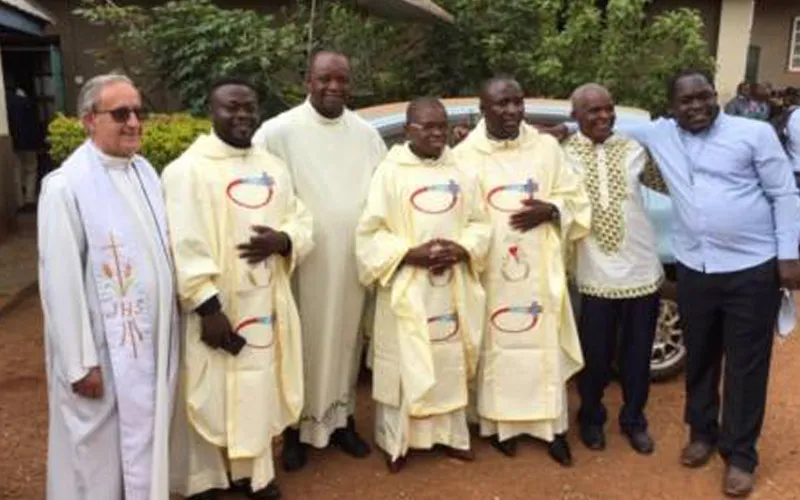Nairobi, 26 April, 2021 / 1:05 pm (ACI Africa).
Lively liturgical celebrations that give space for young people to participate in the life of the church in Africa explains the growing number of vocations on the continent, a member of the Comboni Missionaries of the Heart of Jesus (MCCJ) has said.
In an interview ahead of the World Day of Prayer for Vocations marked Sunday, April 25, the Secretary-General for the Formation of Comboni Missionaries, Fr. Elias Essognimam Sindjalim, has been quoted as saying, “Some say that Africans enter Religious Life because of poverty. I think that the real humus for vocations is the liveliness and vitality of the African local churches, in which young people find a space for the growth of their faith.”
“Even if this motivation for flight from poverty may exist in some candidates, it is purified in the long Comboni formative process,” Fr. Elias notes in the Saturday, April 24 interview report highlighting the status of vocations in Religious Order founded by St. Daniele Comboni.
Historically, African vocations for the Institute “almost exclusively” came from Parishes animated by Comboni missionaries, a situation Fr. Elias says has now changed.
“By now the young people who ask to become Comboni also come from non-Comboni Parishes because of globalization, but above all as the result of the missionary animation service carried out through missionary magazines and the vocational promotion on which our Institute has invested as well as by the social ministries,” the Togolese-born Cleric says in the report obtained by ACI Africa.








